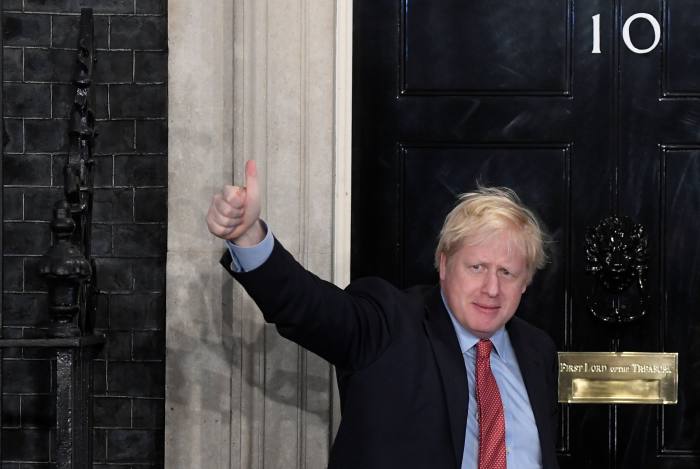
The shares of companies most exposed to the UK economy rallied strongly in the wake of the election result, which returned Boris Johnson with a majority of more than 50 seats.
Sterling rose 1.84 per cent against the dollar, reaching $1.34 while it hit a 39-month high against the euro, rising 1.43 per cent to €1.19.
The shares of companies exposed to the UK housing market were among the best performers on the UK stock market this morning, including builders merchant Travis Perkins (up 10 per cent) house builder Crest Nicholson (13 per cent) and banks Virgin Money (14 per cent) and Lloyds Banking Group (up 12 per cent).
Ben Yearsley, director at consultancy firm Fairview Investments, said: "As has been repeated many times, the UK is cheap and unloved. Brexit uncertainty and political chaos has meant no one wanted to invest, even at massively depressed prices.
"As an example of the cheapness, the gap between dividend yield and gilt yield is the widest since the 19th century. Now there is more certainty and a stable five year government I expect overseas investors to return and start looking at the fundamentals again.
"Domestic stocks should bounce the strongest as there has been a disconnect between perceived domestic stocks and overseas ones."
The FTSE 250 index is up 4 per cent since it opened. The companies in this index derive about half of their earnings from within the UK, so are sensitive to the performance of the UK economy.
This is reflected in the more muted gains of the FTSE 100, which is up just 0.9 per cent. The companies in the large cap index derive about 80 per cent of their revenues from overseas, so suffer if sterling rises.
Among the companies to see share price falls were Imperial Brands, a tobacco company, which derives most of its earnings from overseas. The shares are down 1 per cent.
Richard Buxton, manager of the £1.7bn Merian UK Alpha fund, which has significant exposure to UK domestic stocks and which recently attracted its first monthly net inflow of capital since the Brexit vote said: “I expect to see business confidence respond positively to this new set of political realities, which in turn should be genuinely positive for the UK economy.
"The next Budget, which is expected to be announced in February, is likely to be loose in terms of fiscal spending, and therefore stimulatory in economic terms.
"I expect consumer confidence – remarkably resilient in recent years notwithstanding all the uncertainty – to strengthen significantly.
"Turning our attention to sterling, it is probably fair to say that the initial reaction of the pound to the result has been initially a little more muted than might have been expected. That being said, the pound’s breaching of 1.20 versus the euro feels significant, and I would not be surprised to see sterling strengthen further from here.
"Similarly, at the time of writing, the pound was trading at around 1.35 versus the US dollar; from here, it wouldn’t seem too outlandish to suggest that 1.40 could soon be within reach.





